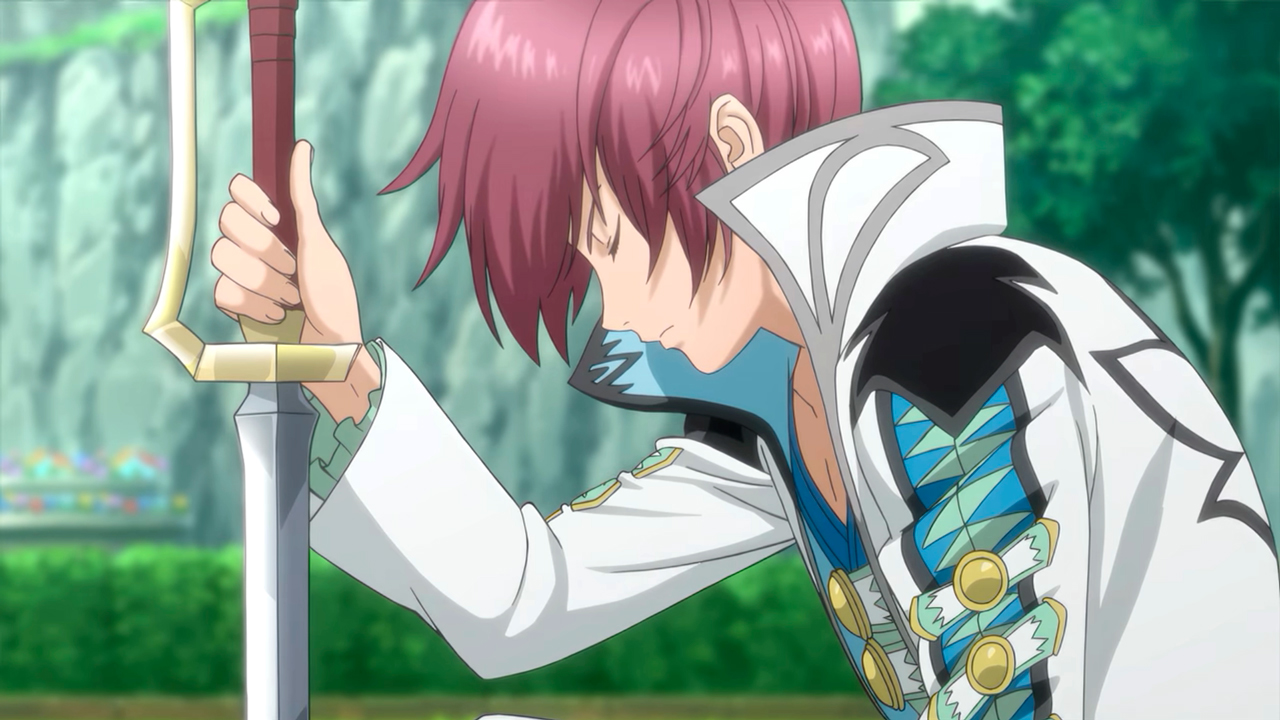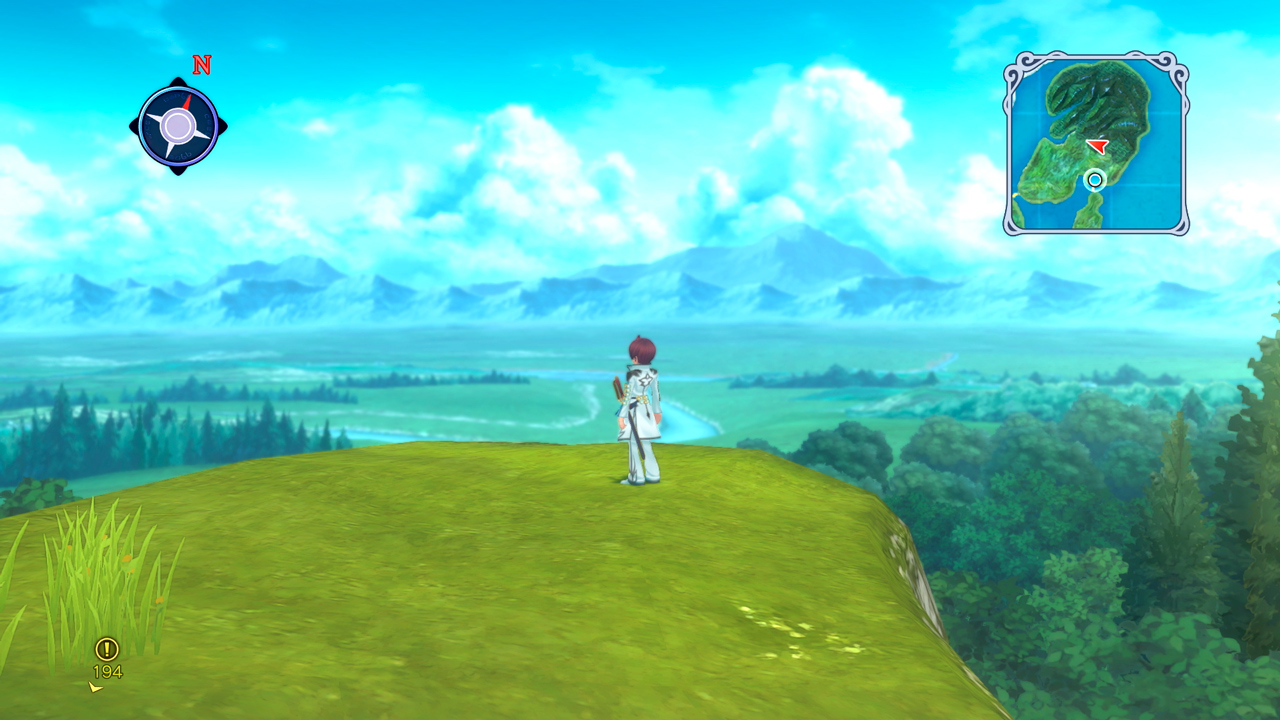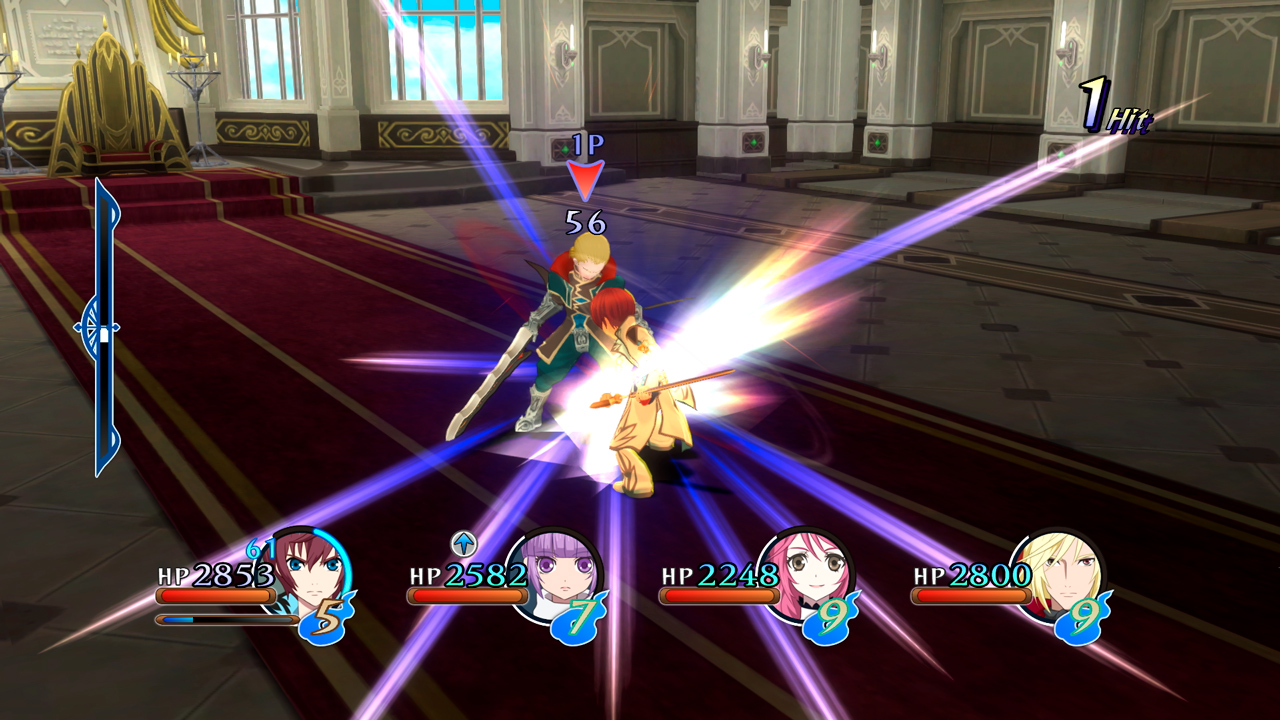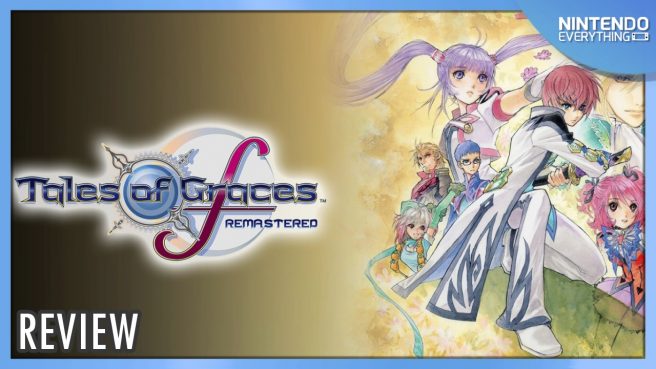Tales of Graces f Remastered review for Nintendo Switch
System: Switch
Release date: January 17, 2025
Developer: Bandai Namco
Publisher: Bandai Namco
As a long-time fan of the Tales series I was excited when Bandai Namco announced the Tales of Series 30th Anniversary Remastered Project, which promised to bring the older titles to modern systems and, hopefully, finally make it a more accessible series. As the games have hopped between platforms over the years, and either haven’t been released outside of North America or in some cases been localized at all, there are still several I haven’t had the opportunity to play. Tales of Graces was originally released on the Wii, but didn’t make its way to western audiences until the PS3 re-release, Tales of Graces f, which added a new epilogue chapter to the story and various quality-of-life improvements. Tales of Graces f Remastered brings this version to the Nintendo Switch and, barring a single glaring flaw, does so with (dare I say it) style and grace.
Tales of Graces f begins in the small town of Lhant where Asbel Lhant, an excitable young boy who happens to be the eldest son of the Lord of Lhant and heir apparent to the title, lives with his younger brother Hubert and childhood friend Cheria. On an escapade strictly forbidden by Asbel’s father, they discover a mysterious girl lying in a field of flowers with no memory of her past or even her name. Asbel, being the exuberant youth that he is, decides to give her a name himself, Sophie, and takes her under his wing with the vague promise of recovering her lost memories. Shortly after this the prince of the kingdom, Richard, arrives at Lhant on a state visit, and joins their merry band.
Fast-forward seven years following a tragedy of sorts and Asbel is now on the verge of becoming a full-fledged knight. A confident and capable, but clearly troubled young man, he is sent to investigate a nearby village that has been subject to monster attacks. Unfortunately, he is recalled back to his hometown before he can become a knight in truth, due to his father’s passing away, to take the title of Lord of Lhant. But of course, things have changed in the last seven years, both for Asbel and his childhood friends. Shortly after Asbel returns home, things quickly escalate, as the events that happened in the past come back to haunt them and threaten their future.
Tales of Graces f takes a fairly long time to establish its overarching narrative, but it paints an interesting and complex world that is less reliant on the supernatural than previous titles initially, and more grounded in politics, as nations vie for territory and scarce resources in turbulent times. The sci-fi elements it later introduces to explain the causes of these disturbances feel distinctly out of place given that the grounded political conflict that forms the backbone of the story is suddenly swallowed by an inexplicable quest to save the next magic stone from being drained of its power for reasons that aren’t explained until much later, and it feels particularly disruptive in this instance when it pulls attention away from the core cast of characters.

Fortunately, these occasional pacing issues are more than worth gritting your teeth and enduring, because Tales of Graces f features one of the most likeable casts in the franchise to date. Discovering just how Asbel and his friends have changed in the seven-year time gap and how their relationships change and evolve as a result of the events that unfold gives the story a compelling emotional weight that it would otherwise lack. The two characters introduced outside of the opening act, Malik and Pascal, blend in seamlessly with the rest of the cast and offer excellent counterpoints and perspectives; Malik as the older mentor figure and Pascal as the comic relief, although these are only how their characters are introduced in the broadest sense, and both have their own backstories which are explored during the story. Frequent skits – small fully-voiced scenes of dialogue between the cast – offer insight into their thought processes about both current events and trivial random nonsense, and provide some additional depth to their personalities that would otherwise be missed in cutscenes.
Although its story is somewhat hit-and-miss, Tales of Graces f has a superb real-time combat system to break up those cutscenes. Dubbed the “Style Shift Linear Motion Battle System” in this instalment, it does away completely with the concept of splitting attacks into standard attacks and technical moves, redefining them as A-Artes and B-Artes respectively, which both draw from the same Chain Capacity (CC) points when executed. Each attack has its own CC cost, and can be chained together in combination until you run out of CC, which recharges automatically in combat if you don’t attack for a while.
Initially this feels like a very awkward stop-start system as you’ll be expending your CC quickly and then have to wait several precious seconds waiting for it to recharge so you can attack again. However, as you progress through the game and acquire new artes and more CC points to play with, it begins to feel more natural and fluid, allowing you to execute longer strings of combos and be more consistently aggressive. Of course, enemies all have unique strengths and weaknesses to correspond with your A-Artes and B-Artes type or element, encouraging you to exploit their weaknesses for faster results. On lower difficulties this isn’t required, but on higher difficulties it becomes essential to manage both your own artes and allies’ (although the AI is surprisingly competent in most instances) to succeed.

As you battle you’ll gain the standard EXP to level up (with this increasing depending upon your chosen difficulty level) but you’ll also gain SP, which goes towards mastering Titles. Some titles you’ll acquire automatically as part of story progression, but most are earned through repeated use of artes, completion of optional sidequests, or for meeting specific conditions such as fighting a set number of battles or being inflicted with status ailments. Leveling these will grant permanent boosts to various stats, additional CC points, and new artes to experiment with – in the case of A-Artes these will be assigned to a specific directional button in a chain, and B-Artes will need to be assigned manually to be used. Although the benefits are small, over time these will add up into quite a significant power boost, and are a more direct aspect of character progression that encourages you to change your approach to combat periodically, try out new artes, and experiment with your other party members; thankfully, the AI can also acquire titles during combat as well however, so the onus isn’t entirely on you to manage your entire party when you can only control one of them at a time.
The Eleth Mixer provides a more approachable to synthesis and resource management, with the Dualize command allowing you to combine two different items together for resources or recipe for meals, and will generate items outside of combat, or meal boosts inside combat when specific conditions are met, as long as it is sufficiently charged. The simplicity of the systems here makes them much easier to manage; not needing to buy multiple ingredients and manually cook after every single battle is an especially welcome quality-of-life change the game implements and, like your artes and titles, the more you use the Eleth Mixer, the more its capacity grows, and the better quality items and dishes you’ll be able to produce at greater frequency.

There are a significant number of improvements that have been made to make the overall gameplay experience in the remastered version of Tales of Graces f to provide a more streamlined experience, including the ability to disable enemy encounters, skip cutscenes, and the addition of destination icons, which also indicate time-limited events that were easy to miss in the original version. By far the most welcome change however, and one that I am sure many returning fans will appreciate, is that the Grade Shop (a Tales series staple that grants additional bonuses from the second playthrough onwards) is available from the beginning of your first playthrough, with enough Grade available so that you can purchase every single upgrade. This is a fantastic addition to this remaster that I hope is implemented in future titles in the project, as it allows players to set their own pace whilst playing the game without needing to stop and grind for levels or SP – although you will still, of course, need to earn titles and unlock higher difficulty settings the old-fashioned way.
Unfortunately the biggest change made is not a positive one, as the game is inexplicably locked to 30 frames per second on the Nintendo Switch. This is not an entirely new occurrence for the Tales series, with Tales of Symphonia Remastered being similarly constrained, and thankfully Tales of Graces f does not share the various other technical issues that plagued that release at launch. But this decision has a noticeable impact on combat: on higher difficulties in particular the input latency can become a problem when performing varying A-Arte combo chains, and the overall effect is one that makes it feel comparatively sluggish to other versions. To its credit the game has stable performance across the board, but it is nonetheless a disappointing decision that prevents the experience from being as good as it could be, and marks the Switch version as a sub-optimal experience.
The Verdict

Many JRPGs these days like to thrust you into the center of a globe-shattering conflict and pull you into highly exaggerated high-stakes drama, but Tales of Graces f Remastered is, at its heart, a refreshingly simple tale about friendship, and its emotional poignancy remains just as captivating now as it was when it was originally released. Although it is let down by a disappointing frame rate, once you settle into the rhythm of the combat it quickly becomes second nature to manage your resources, and its more hands-off approach to systems such as cooking and weapon synthesis via the Eleth Mixer make it a much more engaging experience, with less time spent in menus and more on exploration and character interaction. Superb accessibility options and quality-of-life updates make this the optimal way to experience one of the most heartfelt entries in the series to date, and it’s an easy recommendation to make for both newcomers to the series and those who have played it before.
Tales of Graces f Remastered copy provided by the publisher for the purpose of this review.
